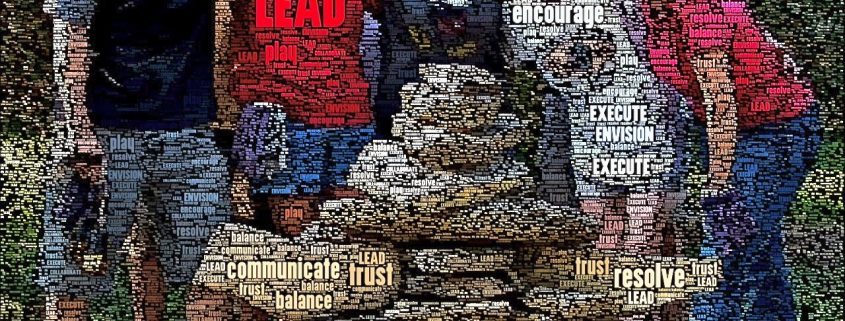Lead Tweets
Leadership is like love. You love or you don’t love. You lead or you don’t lead. Think of it in terms of a woman is either pregnant or not pregnant. There is no “kind of pregnant.” And as a woman can become pregnant, a person can become a leader.
@carrpediem: The #1 requirement of leadership is having followers. Leadership is about connection. We are wired to connect. To lead is to love. The toughest follower to lead is oneself. So how well do you love yourself with all your imperfections, failings, and short-comings to lead others with all their imperfections, failings, and short-comings?
@carrpediem: To make love a bedrock principle upon which you lead is to hold yourself accountable to the highest level and follow an unwavering North Star. To lead is to serve others. Consider Greenleaf’s Best Test, to see if you are a servant leader. “The fruit of silence is prayer. The fruit of prayer is faith. The fruit of faith is love. The fruit of love is service. The fruit of service is peace.” Mother Teresa
@carrpediem: Scott Peck, author of The Road Less Traveled, says to love oneself begins with self-discipline including: delaying gratification; accepting responsibility for one’s actions; acknowledging truth is reality; creating and maintaining balance in one’s life. As a leader, how well do you model self-discipline?
@carrpediem: The opposite of love is fear. The #1 responsibility of a leader is to reduce fear. When fear is high, trust is low. Want to grow trust? Read Charles Feltman, The Thin Book of Trust. How well do you walk-the-talk of the four dimensions of trust: sincerity, reliability, competency, and compassion?
@carrpediem: Rath and Conchie, Strengths Based Leadership, writes that followers are looking for four things from leaders: trust, compassion, stability and hope. What would your followers say about your trust, compassion, stability and hope?
@carrpediem: Hope is not optimism, wishful or positive thinking. Hope is a call for action. Everything begins with hope. We need hope like we need food—not just to survive, but to thrive. Do your followers experience sincere, authentic hope from you?
@carrpediem: Leadership is a privilege. There is a special place for the leader at tables. Leaders get perks. As a leader you are privileged with special, powerful inside information. How do you use your privilege to serve the unprivileged?
@carrpediem: What destroys most leaders is self-deception — the inability to see and acknowledge that the leader has a problem. Privilege and entitlement feed self-deception. Do you act contrary to what you could do for your followers and others? Do you justify your behavior because of the faults you see in others? Read Leadership and Self-Deception by the Arbinger Institute.
@carrpediem: How are you at the five practices of exemplary leadership: modeling the way; challenging the process; inspiring a shared vision; enabling others to act; encouraging the heart. Consider taking the Leadership Practices Inventory to get feedback from those you lead on how well you walk-the-talk of the five exemplary practices.
@carrpediem: What’s your leadership level? Position (people follow because they have to); Permission (people follow because they want to); Production (people follow because of what you have done); People development (people follow because of what you have done for them); Pinnacle (people follow because of who you are and what you represent) Read Maxwell’s The 5 Levels of Leadership.
@carrpediem: The secret sauce of leadership is gratitude. It is what helps leaders reach the Pinnacle level of leadership. Gratitude impacts attitude. Grateful leaders inspire followers to bring their best, be their best, and do their best for the mission the team is facing. How, when, where, and with whom do you share your gratitude?
@carrpediem: As a leader, how diverse and inclusive is your network? Do your followers look like you, think like you, act like you, believe like you? Do you have the capacity to develop relationships with those who are different from you? Are you able to get out of your comfort zone and expand your network?
@carrpediem: Arnold Toybee wrote, “Nothing fails like success.” Think of Kodak, Blackberry and Blockbuster who failed because of success. As a leader, can you abandon the past of comfort and familiarity to take risk in the face of possible failure? Can you think differently and challenge successful practices?
@carrpediem: Do you have a leadership philosophy? Read The Leader’s Compass 3rd edition by Ruggero and Haley. Leaders hold themselves accountable to their written leadership philosophy which they share with their followers and periodically ask, “How am I doing?”
@carrpediem: When you ask for feedback on how you are doing as a leader, you may hear unpleasant remarks. Respond with, “Thank you! Please tell me more!” Your gratitude and desire to learn will amaze, astound and endear you to your followers. This will be a sign of strength rather than weakness.
@carrpediem: Jim Collin and his team, Good to Great, discovered fifth level leadership was key for organizations to make the leap from good to great. The hallmark of fifth level leadership is will and humility. As a leader, do you possess humility, the quality of being courteously respectful of others?
@carrpediem: Today’s digital leader in our robust information rich world has less than 20% of the experience and knowledge to lead others well. Humility is essential to connect well with followers and for others to learn what you don’t know and make better decisions.
@carrpediem: Leaders cultivate relationships with their followers by being interested rather than being interesting. Leaders ask more than they tell. Leaders can be heard saying, “Tell me more!” and asking,“Why?” This is the foundation of being an inspiring leader. Leaders go for the heart of their followers to get to the minds of their followers.
@carrpediem: The sign of a good leader is how well they listen! We talk at over 225 words/minute and we listen at over 500 words/minute. Listen with the intent to understand rather than to reply. Simon Sinek, Start with Why, suggests learning to be the last to speak.
@carrpediem: The #1 mandate of a leader is to grow their followers’ leadership. A leader’s role is to grow others’ leadership by being a coach, mentor and/or sponsor. Who coached you? Who mentored you? Who was your sponsor? How did those serve you to become a leader?
@carrpediem: Daniel Pink, Drive: The Surprising Truth About What Motivates Us, writes we are operating on Motivation 3.0 in today’s world. Motivation 3.0 runs on autonomy, mastery and purpose. Today’s leader would do well to download the Motivation 3.0 operating system.
What is your essential tweet on leadership?








